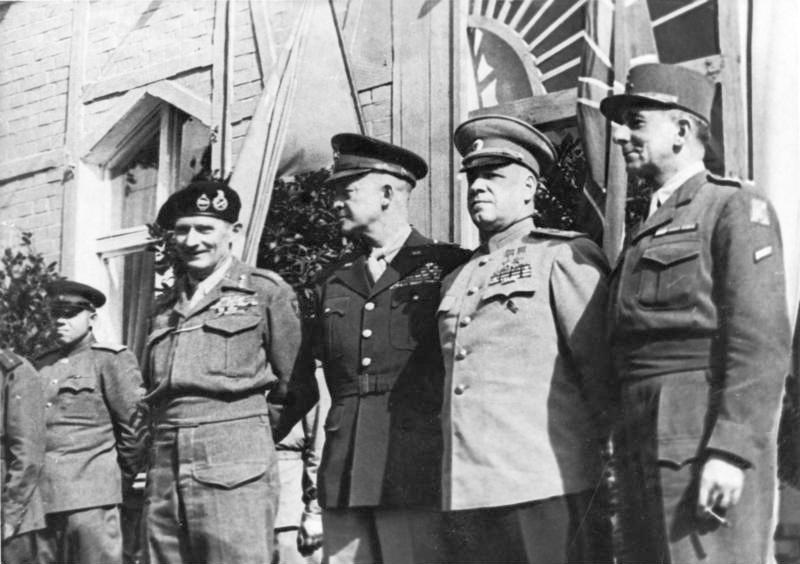Berlin - June 1945: G.K. Zhukov, (Second from the Right), Dwight D. Eisenhower, Bernard Montgomery and Jean de Lattre de Tassigny
Georgi K. Zhukov was born in 1896. After joining the Imperial Russian army he served as a private in the cavalry during the First World War. During the war Zhukov was twice wounded and received several honors, including twice receiving the prestigious St. George's Cross. After the Bolshevik Revolution Zhukov volunteered for the Red Army and served with distinction; ranking among the Red Army's premier officers during the Second World War. Zhukov possessed tremendous organizational skills and was at times a brilliant instinctual leader remarkable for his aggressiveness, skill, and ruthlessness. Zhukov really began building his reputation however before World War Two; when his armies hammered the Japanese in a series of battles during the summer of 1939. Some have even argued the scale of the defeats Zhukov inflicted upon the Japanese worked as one element in the Japanese decision to turn toward Southeast Asia and the Pacific for future expansion.
During the Second World War his career followed a generally upward trajectory, although since the war ended military historians have discovered not all of his decisions were as wise as Soviet era propaganda often made Zhukov seem. Perhaps Zhukov's worst defeat occurred during the winter of 1942-43 when the Germans soundly defeated his plan to encircle the German Ninth Army and destroy German Army Group Center. Soviet losses were appalling; however Zhukov recovered and led a series of brilliant operations during the War's final two years. Victories marred however by occasionally bizarre and costly decisions - such as those leading to the bloodbath marking the Soviet assault on Berlin in April of 1945. In spite of his at times costly mistakes, more often that not, Zhukov was the victor against his German foes and to this day is remembered as one of the War's great operational level military leaders.
Picture Courtesy of Deutsches Bundesarchiv (German Federal Archive), Bild 183-14059-0018


